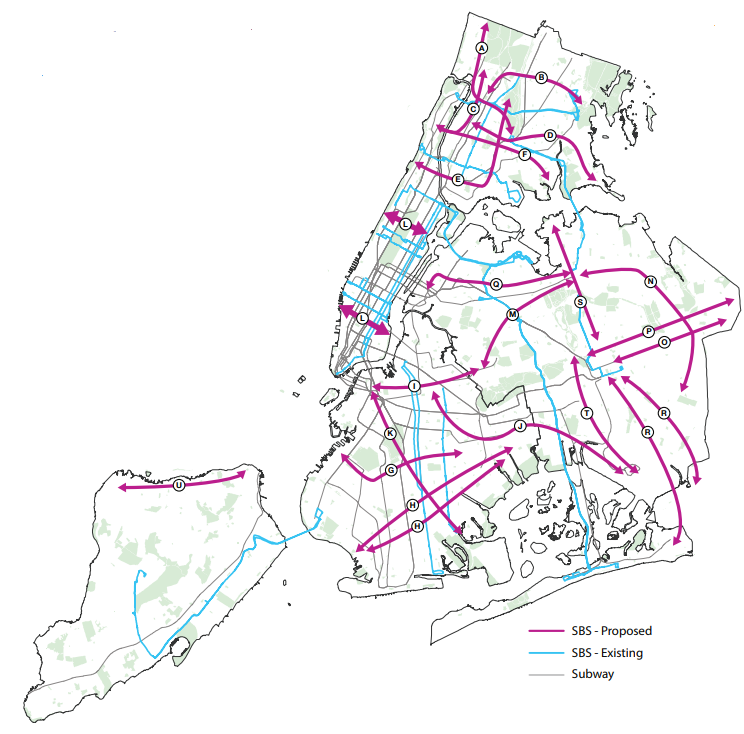
NYC DOT
From the de Blasio administration's Bus Forward proposal: A map of potential future Select Bus Service routes.
It’s going to take money to get New York City’s transit system into a state of good repair and then expand it to meet the needs of a growing city. But there is something more valuable than money: political will. And, especially when it comes to improving the city’s bus system—which is both essential and very, very annoying to the low-income, outer-borough ridership that disproportionately depends on it—that will is being tested in two locations.
As The New York Post reported Wednesday, a group of block associations in Manhattan has filed a federal lawsuit to stop the MTA and the city from restricting car traffic and running more buses along 14-the street during the approaching shutdown of the L train. “Residents say they are terrified that the plan will lead to unrelenting congestion and that ambulances will not be able to get to hospitals, thousands of bikes will whiz by elderly residents, and the streets will be choked by bus pollution,” the Post reports.
Just two weeks ago, Brooklyn Daily reported that five elected officials had joined to say “the Department of Transportation must put the brakes on plans to install bus-only lanes on Kings Highway between McDonald and Ocean avenue that will hurt the economy and make an untenable parking situation even worse.” That’s a reaction to the plan to turn the B82 bus into a new Select Bus Service route, which uses dedicated lanes, fewer stops, all-door boarding and street-side fare payment to make for a much faster ride. SBS has decreased travel time and increased ridership on other corridors around the city.
As City Limits noted in a series last month, the de Blasio administration’s Bus Forward identifies 21 candidate routes for new SBS service and calls for launching two to three new SBS routes per year over the next decade. While the additions are welcomed by many transit advocates, they believe the pace is too slow. But it might be just the right speed for SBS opponents, who would probably prefer to battle the buses neighborhood by neighborhood than have a citywide conversation about how to make buses better for the 2 million people who ride them every day.








One thought on “Beaucoups Bids to Block Buses Blossom”
The Kings Highway merchants know their customers better than the MTA or the NYCDOT. High disposable income shoppers drive to Kings Highway to shop.